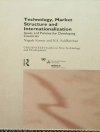The effects of the COVID-19 pandemic on the global tourism industry were unprecedented. International travel fell by 72% in 2020, the worst year on record for tourism. Tourism operations, from family businesses to national tourism organizations all faced potential economic ruin. They had to adapt their business practices and adopt new ways of operating, in order to work around ever-changing restrictions. This book is comprised of chapters and case studies previously published by CABI, that deal with the impacts of, and responses to, the COVID-19 pandemic, along with specially written introductory and concluding chapters that provide context. It provides invaluable snapshots of reactions to the pandemic from individuals and organizations involved in a variety of forms of tourism. Many authors have included postscripts, to record or update their views following the end of the pandemic.
Key themes and issues addressed include: anticipation of and preparedness for the pandemic, the scale of the problem, the adjustments made during the pandemic, likely future directions of change and the implications for sustainability. The book is a useful resource for researchers, students and practitioners in tourism, hospitality and related disciplines.
Om författaren
Richard Butler was educated at Nottingham University and the University of Glasgow (Ph D Geography 1973), and spent thirty years at the University of Western Ontario in Canada as Professor and Chairman of the Department of Geography, and then the University of Surrey, where he was Professor of Tourism from 1997 to 2005. He is currently Emeritus Professor of International Tourism in the Strathclyde Business School, University of Strathclyde, Glasgow. He has published a large number of journal articles, fourteen books on tourism and many chapters in other books. His fields of interest are the development process of tourist destinations the impacts of tourism, carrying capacity and sustainability, and tourism in remote areas and islands.












